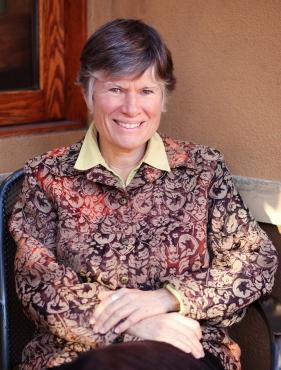Ellen Woodsworth — lesbian activist, women’s liberationist, writer, environmentalist, avid snowshoer, chai tea lover and former city councillor — will receive the Queen’s Diamond Jubilee medal next month.
“It makes me feel good and it gives me strength and courage,” Woodsworth says. “It’s been a very, very bad year for me, so it’s particularly nice to have it at this time when I’ve been so discouraged.”
Woodsworth, who served on city council from 2002 to 2005 and again from 2008 to 2011, lost her seat to the Green Party’s Adriane Carr by a mere 91 votes last year, got “renovicted” from her East Vancouver home of 33 years, and has had to come to terms with her long-time partner’s relocation to another town.
“It’s been a very painful year,” she says.
“Losing the election was a complete shock. It was completely unexpected,” she admits. “It was very painful.”
“People worked hard with me and for me and so to lose and not be able to use my position to work for social good and environmental sustainability and economic justice and all the work that I’ve done for the queer community . . . Now I’m not able to use that position to make those things better. So that’s really, really, really hard,” she says.
Though she says she would run again if the right opportunity arose, for now she is starting from scratch. She is looking for work and hoping to eventually move out of her friend’s home and find permanent housing again.
“It’s really nice to be acknowledged in this way right now as I’m currently trying to rebuild my life,” she says.
A tenacious activist, Woodsworth has dedicated her life to working for social justice, economic equality and environmentally sound planning.
Born in Toronto, Woodsworth went to high school in Japan, then moved to Vancouver to complete her education at the University of British Columbia. She later moved back to Toronto and founded the feminist newspaper The Other Woman and operated a travelling women’s bookmobile. Woodsworth also lived in England for a stint, working with the International Wages for Housework Campaign before returning to Vancouver to settle in 1979.
Besides her work on city council, Woodsworth cites as one of her proudest accomplishments her work in a coalition to have unpaid wages — such as childcare, senior care and homemaking — recognized in the 1996 Canadian census.
“I think unpaid work is the basis of women’s inequality,” she says.
“Two lesbians together earn 60 percent of what two gay man living together can make,” she adds.
Woodsworth also chaired the Action Canada Network opposed to free trade agreements, and the Bridge Housing Society to help house women in Vancouver’s Downtown Eastside.
Two years ago, she co-founded Women Transforming Cities to bring together individuals of various backgrounds to discuss policy making, urban safety, budgeting, housing and homelessness, health, and poverty alleviation to make cities more inclusive, equitable and democratic for women and girls.
“I think that Ellen is such an outstanding activist all around,” says MP Libby Davies, who will present the Queen’s medal to Woodsworth during a ceremony Jan 23.
“I have a huge amount of respect for her and her integrity and work and how she never gives up,” Davies says. “She inspires people.”
Davies says Woodsworth’s strength to move beyond recent personal difficulties to keep rallying for social justice is admirable.
“She’s a person of very modest means, yet she puts out so much,” Davies says.
“She’s a very proud out lesbian and has done an enormous amount of work for the LGBTQ community,” Davies adds. “Ellen is someone you can count on. She doesn’t separate herself from the community. She’s been a pillar in terms of equality, LGBTQ issues, in peace and it goes on and on.”
“I believe that it’s important to work for social justice and to make the world a better place. I was raised with those values,” says Woodsworth, whose great-uncle JS Woodsworth co-founded the Cooperative Commonwealth Federation, precursor to the NDP.
“I’ve enjoyed the work I’ve done,” she says, “whether it’s in the Downtown Eastside or the queer community or the women’s movement or the seniors movement . . . It gives me meaning.”

 Why you can trust Xtra
Why you can trust Xtra


